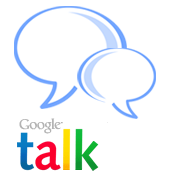This week's lesson included the three sources of Information
- Primary Source
- Secondary Source
- Tertiary Source
Primary Sources :
A primary source is an original object or document, first-hand information.
These sources produce materials in the time where one may be investigating. It
enables researchers to get the most accurate information of an historical event
or time period.
The following also represent the primary sources of information,
Contemporary Accounts of an event written by the person who experienced or
witnessed it.
Original Documents.
Published works written soon after the event.
Primary source includes
Diaries, Journals, Letters, Photographs, Interviews, Speeches, Audio or Video
recordings, Manuscripts, Research reports, Autobiographies, etc.
"Diary of Anne Frank"- A diary written by Anne during the WWII is a
primary source
"Long Walk to Freedom- The Autobiography of Nelson Mandela"- The life
story of Nelson Mandela written by himself is a primary source.
"Gettysburg Address"- The speech given by Abraham Lincoln is a
primary source.
"Declaration of Independence"- A historical document of America
is a primary source.
Others are Birth Certificates, Military Records,etc.
"Published First-hand accounts or stories"- John McCain's experience
of being a war-prisoner in Vietnam.
"Sound Recordings and Interviews"- Live Addresses from Radio and
Records of Face to Face talks are also primary sources.
"Photographs and Videos"- Photographs and Videos from WWII are
primary sources.
"Letters"- A written form of communication that is usually sent
through postal service.
Secondary Sources:
Something written about the primary source is a a secondary source. It is like
a Second-hand information which are written sometime after the fact. There are
also people who study the primary source closely and later interpret it in
their own way. It is also a Secondary Source.
" If I tell you and you tell another; I am the primary source and you are
the secondary source, Simple!"
Some of the Secondary sources:
Published works such as Journal Articles, Books,etc.
Biographies- Life story of great people written by someone else, Almanacs,
Encyclopedias, History Books, textbooks etc. are all secondary sources.
There is also the Newspaper which can be both a primary or a secondary source.
Tertiary Sources:
It is a collection of both the primary and secondary sources. Most of the
References are included in Tertiary source.
Examples, Guide to the Literature, Bibliographies of Bibliography, Directories
of Directory etc.
LIBRARY
It is a place where many books are available. It also provides many services
such as book lending, photocopy, information search, reading rooms,
multimedia collection, e-journals and many more.
Encyclopedia: A book containing information on all the subjects or
limited to specific field or subject. It has two types: General and Special.
General encyclopedia includes encyclopedia Britannica, encyclopedia Americana,
Oxford Junior encyclopedia and so on. Special encyclopedia has International
encyclopedia of Social sciences, encyclopedia of Indian literature etc.
Dictionaries: A book that provides the definition for a word and has many
other uses as well such as spelling, pronunciation, etc.
There are also some alternative names for it. They are
Glossary, Lexicon, Thesaurus, Vocabulary. Although they have an identical
purpose, their is slightly different.
Geographical Sources:
Maps, Atlases, Gazetteers, Globes, Travel Guides.
Year Book: A book on the annual development of an organization, a
subject or in a geographical area.
Example, Manorama year book, Europa Year Book, etc.
Government publications: Official publication issued by the government.
Example, Statutes, Acts, Debate of Parliament,etc.
Periodicals: Published on a regular basis. It can be issued in
print, microform and electronic formats. It is expected to provide up-to-date
Information on topics. E.g. Popular magazines, scientific journals,etc.
Information Retrieval Systems
- OPAC (Online Public Access Catalog)
- Databases
- The Internet
OPAC: An online catalog of all the materials in a Library. Any material
present in a Library can be searched effectively here. OPAC's can searched
using author, titles, etc.
Databases: Collection of digitized information organized for simplified,
fast searching and retrieval. It is updated regularly and contains
bibliographic citations or references.
The Internet: A high-speed electronic network that connects all the
personal computers and Organizational computers around the world. It is
connected through fibreoptics. WWW. (World Wide Web) is an international
network of internet servers that allows access to unlimited amount of
information.
Multimedia:
Audio,Visual and Audiovisual materials:
The multimedia materials are used in every field. It is very useful for
bringing out detail information on various topics.
Audiovisual media includes CDs, DVDs, Videos, etc.
CD-ROMs are also a media greatly used in various fields. We can find two types
of this CDs, CD-I(Compact Disk Interactive) and CD-WORM.
Classification Scheme:
A system used to systematically organize the documents, books, etc. They are
mainly used in Libraries. Two types of systems are mainly used ,they are
LCC( Library of Congress Classification scheme) and DDC(Dewey Decimal
Classification scheme)
Micro form, Micro print, Micro cards, Micro fiche are all medias which contain
a certain type of information. Their sizes are usually very small.







































